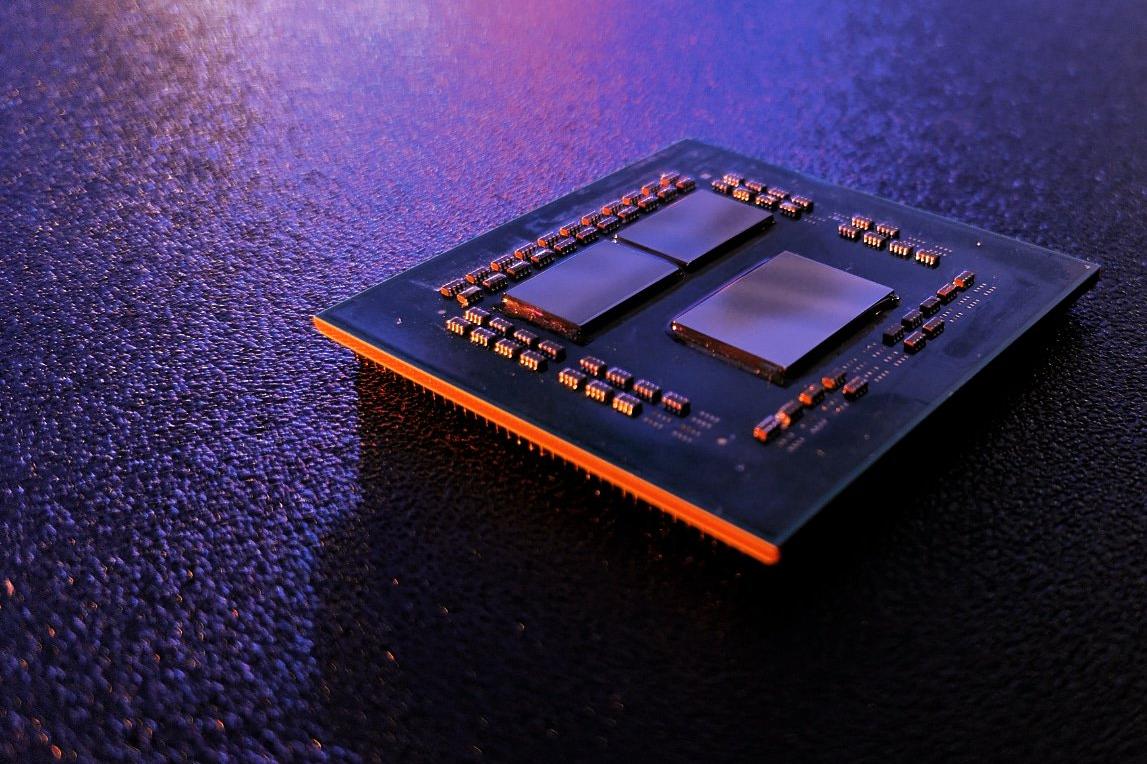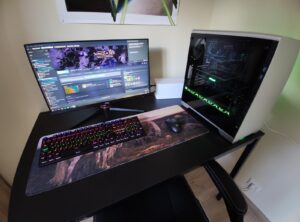When AMD launched the Ryzen 3 3300X and Ryzen 3 3100 processors, it additionally gave users details concerning the approaching B550 chipset that these processors were targeted for. a part of that announcement enclosed a chart, showing however because of BIOS limitations, sure chipsets would solely support sure AM4 processors. X570, as an example, would support previous Ryzen 2000, current Ryzen 3000, and future Ryzen 4000 processors – it didn’t support the initial Ryzen 1000 processors.
Well, AMD has surprised us with their intention to add Ryzen 4000 and Zen3 support to older B450 and X470 Motherboards. this is often getting to be a ‘promise currently, discover the main points later’ arrangement, however, this could change most (if not all) users running four hundred series AMD motherboards to upgrade to the Zen three processors set to be disclosed later this year.
On that chart, it absolutely was noted shortly that there was an obvious omission. AMD’s B450 and X470 motherboards were listed as supporting Ryzen 1000/2000/3000, however not the longer-term Zen3-based Ryzen 4000 processors. This created variety of users at once terribly involved, particularly if that they had purchased a B450 or X470 motherboard with a Ryzen 3000 processor with the hopes to upgrade it within the future.
AMD came underneath loads of fireplace. the corporate had originally secured that it might support the AM4 platform from 2016 through 2020 (or ‘through to’ 2020). loads of users had assumed that this meant any AM4 platform primarily based motherboard would be ready to settle for any processor made of 2016 to 2020, together with the new Zen three processors set to be disclosed later this year. the actual fact that there was a discrepancy between what the users expected and what AMD had been speech communication basically became a miscommunication or a misunderstanding, however, one that had a negative impact on a variety of users World Health Organization was expecting to upgrade the system.
Ultimately the rationale for the resistance was right down to the BIOS size. every generation of processors need some of the BIOS area for compatibility code – commonly if you’ll support one processor from a generation, then you’ll support all of them. we have a tendency to also are within the era of graphical interface BIOSes, and as a result a number of the BIOS code was reserved for fancy menus and therefore the ability to regulate fan curves or update the BIOS during a a lot of intuitive means. All of this takes up area, and a few vendors ditched the flamboyant graphics so as to support a lot of processors.
Most AMD motherboards square measure outfitted with 128 unit of measurement (16 megabyte) BIOS chips. the rationale why this can be the case is because of a limitation on a number of AMD’s early AM4 processors – because of style, they will solely ever address the primary sixteen megabytes of a BIOS chip. therefore even though a motherboard marketer had a bigger BIOS chip, say MSI had a thirty two computer memory unit chip, then it might truly operate like 2 divided BIOSes and it might get terribly sophisticated. there’s no straightforward thanks to support each AM4 processor with a straightforward sixteen computer memory unit BIOS.
By our estimate there square measure 84/86 current processors on the AM4 platform in total, investigating Ryzen professional components in addition. These square measure set across many families (A-Series, Zen, Zen APU, Zen+, Zen+ APU, Zen2, Zen2 APU, etc), every with their own AGESA platform to affect, that all has got to get into the BIOS. this can be what makes it such a decent squeeze.
As a result AMD at the start created the choice that the B450/X470 motherboards would support the Ryzen a thousand, Ryzen 2000, and Ryzen 3000 processors, however wouldn’t be able to support any further because of this limit. AMD ultimately wished the 500-series chipsets, the B550/X570, to be a launch area for the long run Ryzen processors.
AMD’s Announcement these days
AMD these days is reversing its call to limit the BIOSes on the 400-series chipsets. to chop an extended story short, the TL;DR mantra from AMD is:
‘We’ve detected our audience, and that we perceive the issues. we have a tendency to square measure reaching to total the simplest way to support Zen three on our 400-series chipsets between currently and launch – we’re still figuring out the what and therefore the however, however we are going to update you nearer to Zen three launch’.
They are acknowledging that they maybe misread things from its user base. a part of this issue stems from AN recent mainframe line not having the expansion space, and therefore the believed that pushing support for Zen three to the 500-series wouldn’t be that huge of a problem. currently that they see it’s, they’ll attempt to build it work. they’ll decide to address the technical challenges, and although they are doing not have all the small print at this point, it’ll be worked on.
There is still 6+ months (?) till we have a tendency to see Zen three, in order that they do have loads of your time to do things and to check things.
In conversations with AMD, we have a tendency to conjointly discovered a lot of insight into what this entails.
As most motherboards have sixteen MB, and therefore the CPUs will solely address the primary sixteen MB of a BIOS chip, then we’d see a problem wherever 400-series motherboards could find yourself having 2 ‘forked’ BIOSes – one for ‘up to Ryzen 3000 inclusive’ and one for ‘Ryzen 3000 and beyond’. the previous one can possible be a default BIOS, which is able to be picked up by auto-update code, but the latter can possible continuously be a Beta BIOS, and it’ll need user intervention.
AMD can modify the ODM partners with the feature – partners like ASUS, GIGABYTE, Dell, HP, MSI, Lenovo, etc. However, it’ll be up to the ODM partner to really modify it as a feature for his or her motherboard or pre-built system. If they’re not willing to complicate matters with this BIOS fork, then sadly you’re out of luck. it’s believed but that if most of the vendors square measure aboard straightaway, then the remainder can follow. AMD are providing continual support to its ODM partners on this, particularly those with auto-update code.
There can be a scenario wherever moving up to the beta BIOS fork can build the system unable to downgrade. it’d find yourself being a unidirectional answer. it’d even be a tough transformation – with the inject supporting 3000 and below, and therefore the fork 4000 and up. during this event, I asked AMD if they might be increasing the Boot Kit program as they did with Ryzen 2000, and disposition CPUs to users that required them to update. AMD expressed that this can be a chance, however they haven’t worked on those details at this point.
AMD’s full press release:
As we head into our upcoming “Zen 3” architecture, there are considerable technical challenges that face a CPU socket as long-lived as AMD Socket AM4. For example, we recently announced that we would not support “Zen 3” on AMD 400 Series motherboards due to serious constraints in SPI ROM capacities in most of the AMD 400 Series motherboards. This is not the first time a technical hurdle has come up with Socket AM4 given the longevity of this socket, but it is the first time our enthusiasts have faced such a hurdle.
Over the past week, we closely reviewed your feedback on that news: we watched every video, read every comment and saw every Tweet. We hear that many of you hoped a longer upgrade path. We hear your hope that AMD B450 and X470 chipsets would carry you into the “Zen 3” era.
Our experience has been that large-scale BIOS upgrades can be difficult and confusing especially as processors come on and off the support lists. As the community of Socket AM4 customers has grown over the past three years, our intention was to take a path forward that provides the safest upgrade experience for the largest number of users. However, we hear you loud and clear when you tell us you would like to see B450 or X470 boards extended to the next generation “Zen 3” products.
As the team weighed your feedback against the technical challenges we face, we decided to change course. As a result, we will enable an upgrade path for B450 and X470 customers that adds support for next-gen AMD Ryzen™ Processors with the “Zen 3” architecture. This decision is very fresh, but here is a first look at how the upgrade path is expected to work for customers of these motherboards.
- We will develop and enable our motherboard partners with the code to support “Zen 3”-based processors in select beta BIOSes for AMD B450 and X470 motherboards.
- These optional BIOS updates will disable support for many existing AMD Ryzen™ Desktop Processor models to make the necessary ROM space available.
- The select beta BIOSes will enable a one-way upgrade path for AMD Ryzen Processors with “Zen 3,” coming later this year. Flashing back to an older BIOS version will not be supported.
- To reduce the potential for confusion, our intent is to offer BIOS download only to verified customers of 400 Series motherboards who have purchased a new desktop processor with “Zen 3” inside. This will help us ensure that customers have a bootable processor on-hand after the BIOS flash, minimizing the risk a user could get caught in a no-boot situation.
- Timing and availability of the BIOS updates will vary and may not immediately coincide with the availability of the first “Zen 3”-based processors.
- This is the final pathway AMD can enable for 400 Series motherboards to add new CPU support. CPU releases beyond “Zen 3” will require a newer motherboard.
- AMD continues to recommend that customers choose an AMD 500 Series motherboard for the best performance and features with our new CPUs.
There are still many details to iron out, but we’ve already started the necessary planning. As we get closer to the launch of this upgrade path, you should expect another blog just like this to provide the remaining details and a walkthrough of the specific process.
At CES 2017, AMD made a commitment: we would support AMD Socket AM4 until 2020. We’ve spent the next three years working very hard to fulfill that promise across four architectures, plus pioneering use of new technologies like chiplets and PCIe® Gen 4. Thanks to your feedback, we are now set to bring “Zen 3” to the AMD 400 Series chipsets. We’re grateful for your passion and support of AMD’s products and technologies.




